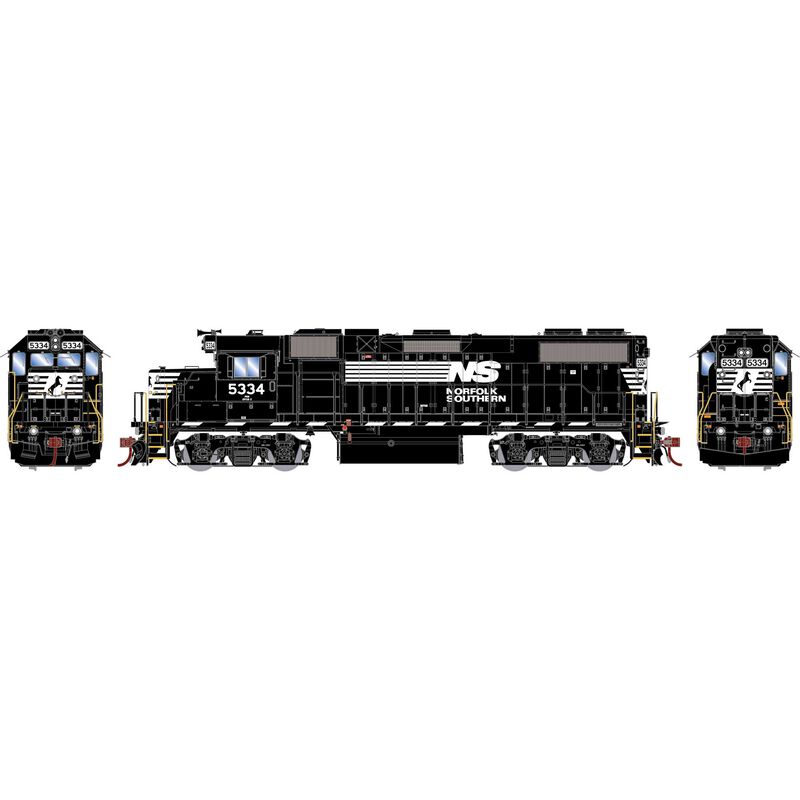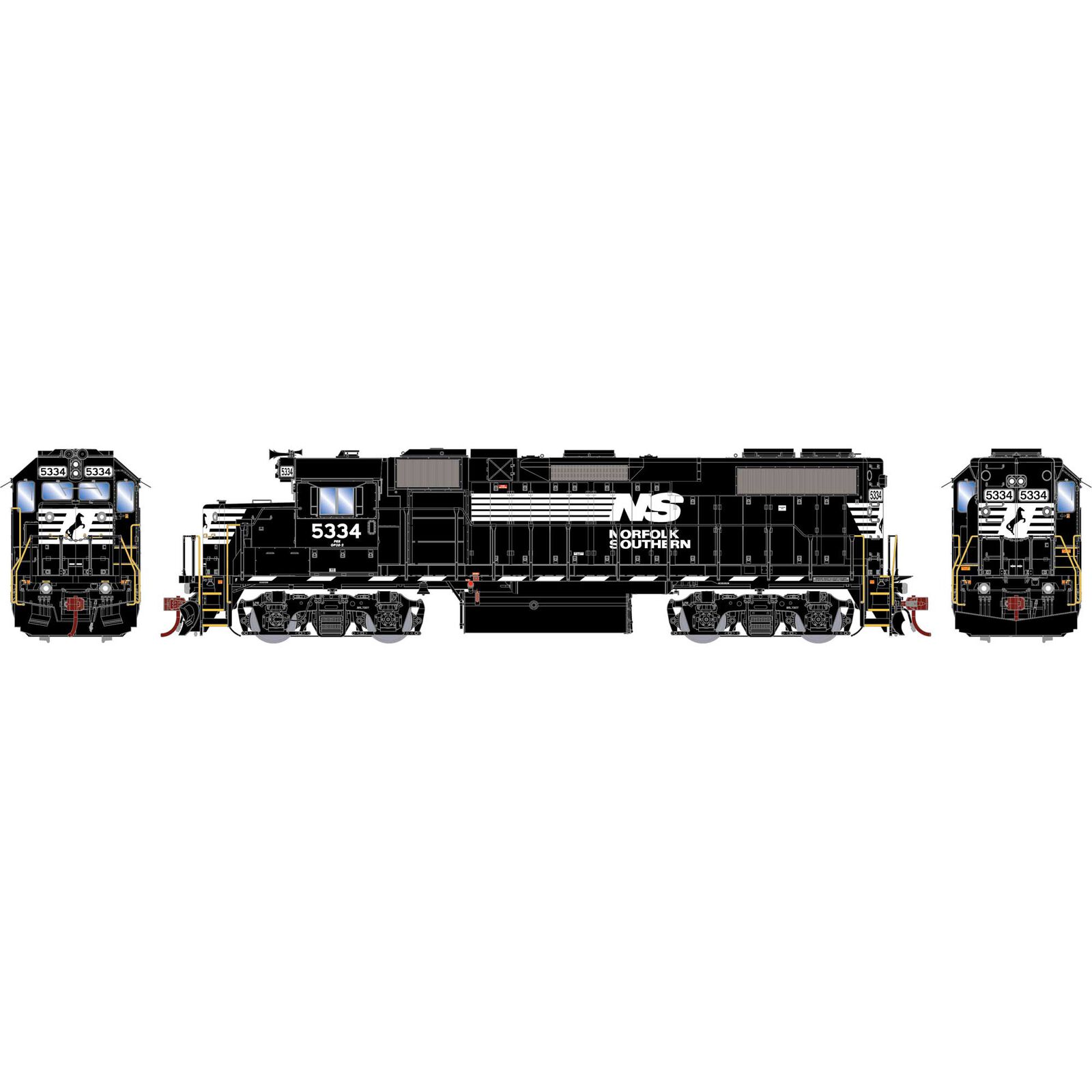NS FEATURES:
- Lighted class lights
- Lighted number boards
- Leslie 3-chime horn
- Forward and rear ditch lights
- Short fuel tank
- Sinclair antenna
- Small front EMD plow
After the split of Conrail in 1999, both CSX and NS received former CR GP38-2’s as part of the deal. NS began to patch them into their number series. Some also received full repaints while keeping their CR features such as small EMD front plow, front and rear ditch lights, and cab signal box. Another unique feature were the original installed class lights on both ends, when most railroads had theirs removed.
ROAD NUMBER SPECIFIC FEATURES:
#5280- Ex-CR #8077
- mid phase w/ chicken wire grilles
- drop steps on both ends
- squared paper air filter box
- rear “weedcutter” plow
- 4 stack exhaust
- Blomberg M trucks
- Ex-CR #8100
- mid phase w/ chicken wire grilles
- drop steps on both ends
- squared paper air filter box
- standard 2 stack exhaust
- Blomberg M trucks
- Ex-CR #8166
- late phase w/ corrugated grilles
- front anticlimber and rear drop step
- rear “weedcutter” plow
- angled paper air filter box
- flush 2 stack exhaust
- Blomberg B trucks
GP38-2 SERIES LOCOMOTIVE FEATURES:
- Operating Class Lights
- Operating Number boards
GENESIS DIESEL LOCOMOTIVE FEATURES:
SOUND-EQUIPPED MODELS ALSO FEATURE
- Onboard DCC decoder with SoundTraxx Tsunami2 sound
- Dual cube speakers for optimal sound quality
- Sound units operate in both DC and DCC
- Full DCC functions available when operated in DCC mode
- Engine, horn, and bell sounds work in DC
- All functions NMRA compatible in DCC mode
- Precision slow speed control
- Program a multiple unit (MU) lashup with lead unit only horn, bell, and lights
- Many functions can be altered via Configuration Value (CV) changes
- CV chart included in the box
PROTOTYPE SPECIFIC INFORMATION
By the early 1970s, many first generation diesels were reaching the end of their service lives. The most common replacement locomotive became the GP38-2. EMD began production of the 16-cylinder, non-turbocharged, 2000 horsepower engine in 1972. Unlike the GP38’s engine, which drove a generator to supply power to the traction motors, the GP38-2s prime mover drove an alternator which produced AC electrical current that was rectified to DC to power the four traction motors. Another major change for the GP38-2 was the introduction of the “dash 2” modular electrical cabinet. For more than 40 years, the GP38-2 has worked main line freights, locals, switching jobs, yard service, helpers, snow fighting trains, and hump power. Many remain in service today.









